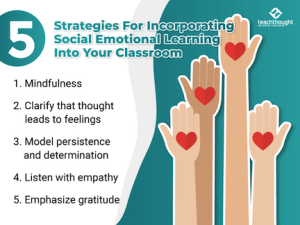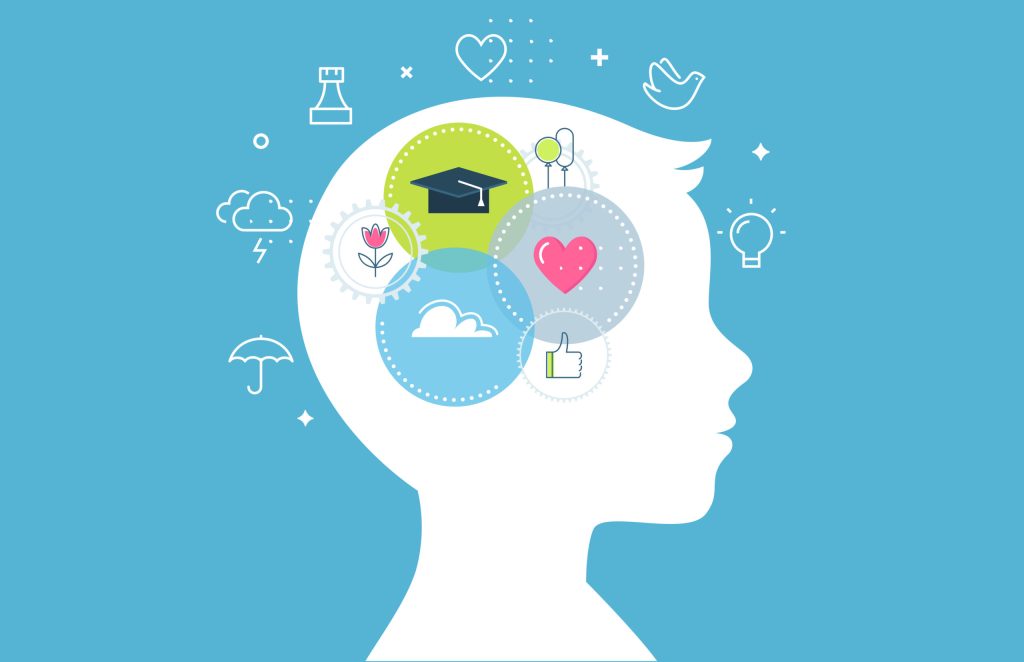Schools Are Pathologizing Children
Both parents and students need to be aware that schools are collecting mass amounts of personal information in order to pathologize children. They are using unproven methods, employed by amateurs to diagnose mental illness. The information they collect and retain could ruin prospects for high school, college, and jobs for students. This information is used to identify those for mental health “interventions” such as operant conditioning (behavioral rewards and punishments), forced counseling, and referral to government child-protective agencies. We have already seen the latter occur in anti-transgender Texas where the governor directed Texas Family and Protective Services to investigate parents of transgender children. Transgender students or even those mentioning being transgender and parents can be caught in this web which can result in outing and complicating lives. But any child or parent can be potentially ensnared whether transgender or not.
No, this not a conspiracy theory and it is not political, although it is open to political abuse.
First, I will tell you what they are doing, then I will tell you why I think they are doing it. Finally, I will tell you what can be done about it.
What They are Doing
What they are doing typically involves four processes:
- Social Emotional Learning processes
- Behavioral checklist collection
- Multi-Tier System of Support collection
- Storage of information in local, research and national databases.
Social Emotional Learning
Social Emotional Learning (SEL) is a method of instruction purported to improve emotional perception, emotional self-control, awareness of cultural differences, and relationship management. It stands alongside traditional school subject such as mathematics, science and social studies but also seeks to permeate traditional subjects.
The intellectual basis of Social Emotional Learning starts in the 1930s with Lev Vygotsky, a Soviet psychologist, who believed that cognitive learning could only take place through social interaction. He saw psychology as being the “Science of the Superman”, integral to the future of Communism. This approach emphasized students working closely with other students or a teacher to build up their knowledge and presumably keep on the Communist straight and narrow.
It was elaborated and prototyped in the 1990s by James P. Comer, a Yale psychiatrist who claimed success in the New Haven School system. Finally, in 2006, a group of interested parties formed CASEL, the Consortium for Social Emotional Learning based on the idea that learning depends on the development of emotional and social intelligence. This approach was roundly criticized and other approaches were supported by more and better evidence, but the effort continues. CASEL is now a not-for-profit corporation with revenues over 20 million dollars per year. Many schools used Federal money earmarked for dealing with COVID to install SEL and obtain training for teachers and staff. CASEL continues to provide consulting guidance and courseware.
SEL involves several procedures: group circles in which students are encouraged to express their emotions and home life situations. The idea is to improve emotional perception and discuss how to handle ethical situations. These circles often resemble “struggle sessions” to deal with opinions which are at odds with the culture, group, or teacher. Teaching of critical thinking skills is banned in favor of “feelings”. These discussions do not involve critical thinking to analyze events, reality, history, and rationality. Misbehavior or divergent opinions are indicative of mental illness as in Soviet Russia or Communist China schools and society.
By treating SEL as its own subject and by intruding SEL into traditional subjects, the amount of time for teaching traditional subjects is reduced. SEL also involves mindfulness and meditation training derived from Eastern religions as transplanted through the Western “New Age” of the 1980s. Meditation takes up valuable school time. Although most of the current school learning shortfalls are attributable to the COVID epidemic, some blame can be attributed to online SEL by taking away valuable time for traditional subjects.
 The SEL processes leave opportunities for political indoctrination wide open. Teacher and group interactions can favor one political side or another when ethics are discussed and critical thinking is not taught. Both left and right can take advantage for indoctrination, although most current vocal criticism comes from the right. The left has already forged an initiative called “Transitional SEL” which is clearly Marxist philosophy in origin because it seeks to tear down traditional Western culture and families. The right uses well-established religious processes although these do not garner much press.
The SEL processes leave opportunities for political indoctrination wide open. Teacher and group interactions can favor one political side or another when ethics are discussed and critical thinking is not taught. Both left and right can take advantage for indoctrination, although most current vocal criticism comes from the right. The left has already forged an initiative called “Transitional SEL” which is clearly Marxist philosophy in origin because it seeks to tear down traditional Western culture and families. The right uses well-established religious processes although these do not garner much press.
SEL information is collected on each student on a daily basis and incorporated into databases, frequently provided by one company, Panorama, Inc. Revenues for Panorama exceed $30 million annually. This for-profit company provides software systems to collect, analyze and archive SEL and related data. Data privacy for individuals is not legally protected and privacy beyond school is unclear.
Both CASEL and Panorama market heavily to school systems around the country and provide model proposals to apply for Federal, state, and private grants.
Behavioral Checklists
Behavioral checklists have been developed to assist clinical psychologists and psychiatrists in diagnosing mental illness in their patients. School psychologists generally do not diagnose mental illnesses but instead carry out psychological testing and provide consultation to teaching staff. There is about 1 high school psychologist for every 1500 students in the US, so school psychologists only encounter or refer the most severe behavior problems. A high percentage of school psychologist slots remain empty and bilingual psychologists are quite rare. However, school psychologists are advocating the use of behavioral checklists by teachers and parents.
 Under this new pathologizing regime, teaching staff and parents do the work of screening students for behavioral problems to pass up to school psychologists, (most of whom then refer such problem students to clinicians.) Teaching staff and even parents are required to use behavioral checklists which were developed for real clinical mental health professionals. This is not their intended use. Parents and teachers have no training or experience to properly interpret the items on the checklist. To do so would require at least a master’s degree in psychology or counseling. Checklist results are passed up the line to school psychologists for action. Two common checklists that are purchased by schools are the Pediatric Symptom Checklist, and the BASC (Behavioral and Emotional Screening System). Data from these checklists can be stored in Panorama, if the school system has purchased their database software. This gives teaching staff and anyone else with access visibility into mental health information. Outside of schools, such information would be protected by Federal law (HIPPA) but no such legal privacy protections are provided by schools.
Under this new pathologizing regime, teaching staff and parents do the work of screening students for behavioral problems to pass up to school psychologists, (most of whom then refer such problem students to clinicians.) Teaching staff and even parents are required to use behavioral checklists which were developed for real clinical mental health professionals. This is not their intended use. Parents and teachers have no training or experience to properly interpret the items on the checklist. To do so would require at least a master’s degree in psychology or counseling. Checklist results are passed up the line to school psychologists for action. Two common checklists that are purchased by schools are the Pediatric Symptom Checklist, and the BASC (Behavioral and Emotional Screening System). Data from these checklists can be stored in Panorama, if the school system has purchased their database software. This gives teaching staff and anyone else with access visibility into mental health information. Outside of schools, such information would be protected by Federal law (HIPPA) but no such legal privacy protections are provided by schools.
Multi-Tier System of Support (MTSS)
Some schools buy the MTSS from Pearson, Inc. to screen for and identify students who are struggling with their behavior in order to schedule either small group or individual interventions with mental health professionals because of their presumed pathology. Daily data is collected on each student with regard to misbehavior and can result in group or individual “interventions”. The data is aggregated up to the supervisor and principal level. Misbehavior goes on permanent records of individuals and can influence college and other recommendations. Information also is used to verbally reinforce those miscreants when they do something acceptable to the teaching staff. This is known as operant conditioning. Data from the MTSS is also stored in Panorama, if the school system has purchase their database software.
WHY SCHOOLS ARE DOING THESE THINGS
There are several cited rationales for inserting processes into schools which may result in pathologization:
- The most commonly cited rational is that poor mental health interferes with education by disrupting classes and affecting the emotions of individuals. High or low emotions presumably interfere with educational study and performance.
- These pathologizing processes are thought to help teachers keep control of their classes by reducing disruptions and instilling appropriate individual group behavior. Teachers cannot be blamed for low educational test scores if a student has mental health problems.
- Another rationale commonly cited is that education should prepare the child for life challenges, not just provide traditional subject instruction. Presumably these life challenges require the kind of emotional perception and control taught by SEL to get along with others. Traditionally such life preparation is the domain of parents. Schools seem to think that they know better.
- There is a belief that minorities are disproportionately pathologized. Not enough minority students are treated or counseled, so they say. Pressure for this belief comes from “equity audits” which are required by governments.
- Due to the declining population of religious people, schools need to teach ethics and concern for others. Schools do not trust parents to teach ethics and other topics. The elitist position is that schools know better than parents as to what should be taught.
What to do?
What should parents and children do to avoid the negative effects of these pathologizing processes?
First, I suggest that parents should have long repeated talks with their children to encourage them not to be forthcoming with their emotions or with intimate information about their families while in school. Everything they say and do is subject to recording for later use. How much later? No one knows. What they say is not under HIPAA (Federal law protecting medical information) protection and anyone with access to databases can view it.
It only takes one statement, whether true or not, for students to ruin their careers and lives. At early ages, children often change their viewpoints and may make rash statements. Commonly, they may also report gender dysphoria or sexual orientation and then change their minds. Schools can lock students into mental health categories. Children should be forthcoming with their parents about such things as gender dysphoria and sexual orientation but that is none of the schools’ business.
Second, if parents are required to fill out mental health surveys and checklists, they should be cautious about what they say. They should not refuse to fill them out, that would be a red flag. Just do not report any behavior that can be taken by amateur school officials as violating mental health standards. Conversely, if a parent thinks their child has a problem, they should find a mental health professional outside of school that is expert in the relevant area. Information about these encounters is typically protected by HIPAA and should be kept out of school if possible. For example, most mental health providers are not experts for transgender children.
Third, parents should have enough situation awareness to detect other, new invasive processes in their child’s school and take appropriate countermeasures. SEL, Transitional SEL, behavioral checklists and MTSS are only a few of the current and future processes.
Although the school may think it knows better, parents are legally responsible for what happens to their children and should not be bullied by school officials who are untrained as mental health professionals.
Like to make a comment? Login here and use the comment area below.
Category: FYI














